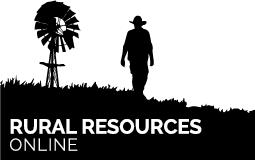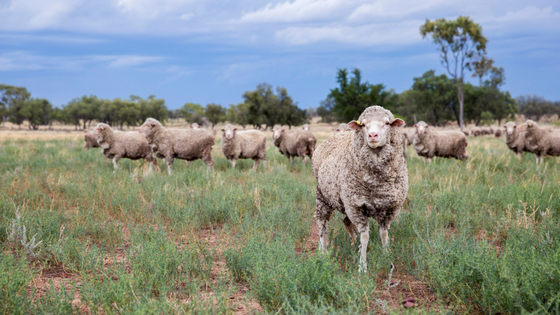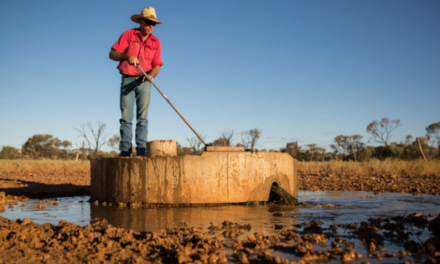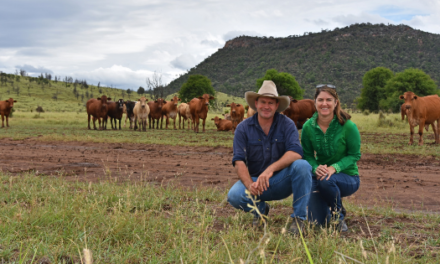In many cases the older generation of the farming enterprise are the primary decision makers, and financial accountability lies with them. As the head of the business, the future direction of the business is largely determined by their actions.
There is learned wisdom that successful entrepreneurs have shared and that the rural decision makers can take advice from and apply to a successful succession planning process for a farming family.
Decisiveness is the key
Sir Richard Branson was asked what one piece of advice he would give that made the biggest difference to his business and he replied: “Decisiveness is key”.
Until a decision is made, nothing can be actioned. If the wrong decision is made then it will be identified pretty quickly and corrected. How the distribution of assets will occur cannot simply be announced one day without any prior discussion having occurred.
Succession planning takes time to do well. The commitment to start genuine discussions on the subject is what needs to be decisive.
Family members need to know that everyone does have a commitment to sort things out in a respectful manner. If decisions are left in limbo then family members will also feel that parts of their life are in limbo.
Until the process is started and some decisions are made then progress reviews cannot happen and no-one will feel like they are getting anywhere.
Knowing is better than not knowing
Shane Atchison (CEO of the fastest growing recruitment agency in the world) noted the biggest difference for him in business was uncertainty. “Uncertainty is worse than bad news,” he stated.
In other words people find not knowing something worse than knowing the bad news.
So if you have bad news to share, you need to reveal it, because for others to live with uncertainty is worse than not being told the truth and being included in the information loop.
This is why is it important for all the impacted family members to be aware of the farm’s financial position and be aware of the goals and expectations of every other family member.
It is very hard for an individual to be committed to the end goals of a business if they do not know where they fit into those goals.
If the rural business cannot realistically help all the individuals attain the goals they have then people need to know that so that they have the opportunity to process why they need to be more realistic and adjust their individual expectations.
Visionaries value the ideas of others
Max Lechin’s (co-founder of Paypal) simple advice was that the job of the boss is to “get the best out of your team” as opposed to trying to be the best in the team.
The person with a ‘closed’ mind on any subject seldom gets ahead. Those who collaborate with others, listen to new ideas and reward initiative are amongst the most successful in business.
Families working in a team environment face the same challenges and often, because they are related, find it hard not to take personally the rejection of their ideas or contributions by other family members.
The future of farming is heavily reliant on the younger generations wanting to continue the family legacy. For the younger generations to be happy to work on the farm they need to feel both a sense of purpose and enjoyment from what they do on the property.
The technological advances of recent years mean that the future of farming will undoubtedly look different to how it does today.
Smart businessmen adapt to change and ensure they have people on their team who can facilitate a positive adoption of new technologies.
Smart rural producers will allow the younger generation to share their ideas for how the business can embrace change and not settle for the same old production techniques.
Good leaders delegate the decision and the accountability
Craig Newmark (founder of Craigslist) says when you are reaching the limits of your time in a business “pass the torch, man”.
This means be prepared to hand over the decision making and key business activities of your business to the next person and let them rise to the occasion.
The sooner the younger generations get the chance to try, the sooner they begin their journey of self improvement. Younger people have a greater capacity to fail quickly, in that they seem to be able to make a mistake, learn quickly and move on.
The balancing act when a business is involved is to ensure the correct safety nets are in place for the business to be able to handle the impacts of wrong decisions. Common sense should sort this problem out.
Delegate small simple tasks and make sure support systems are in place to help people review their decisions, identify what they have learnt and decide what they will do differently next time.
Family leaders need to ask themselves: “What is the risk to the business if the lessons are not learned and therefore experience isn’t gained?”.
Great leaders are true to their values
The comments of nurses in palliative care wards should be particularly poignant when considering rural succession planning. People nearing the end of their life do not reflect on the material wealth they have accumulated but rather whether or not they have lived their life true to themselves and their inner beliefs.
Taking the time to clarify and connect with your values should not be undervalued. Values reflect the deeper belief systems of a person and what they truly see as important in life. Knowing your values and how you will reflect upon your life’s successes, relative to these values, is a great basis for start the succession planning process.
Questions such as: “What is significant and meaningful to me?”, “What sort of person do I want to be remembered as?”’, “What do I stand for in life?” are not questions individuals ask themselves everyday but are ones that could fundamentally transform the succession planning process.
Once identified, values help determine goals and direction and help motivate leaders to make important decisions. Unless the end goal can be identified, it is nearly impossible to set out a correct path to get there. The key is to set individual goals that can shared and expanded to identify group goals and then regularly check back to see if they are in alignment with individual values.





